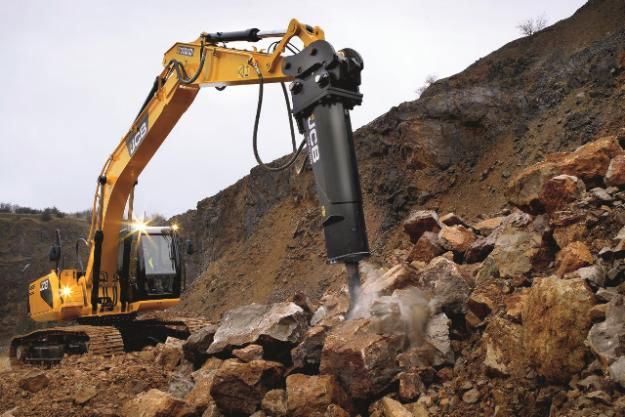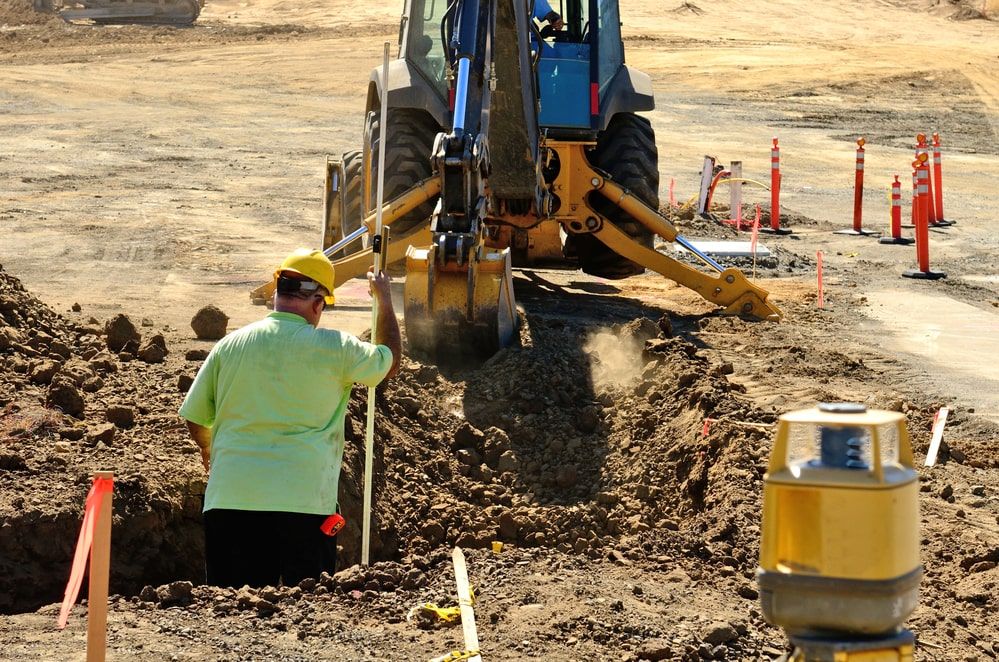Lancaster Excavation - Professional Excavation Providers in Lancaster, OH
Lancaster Excavation - Professional Excavation Providers in Lancaster, OH
Blog Article
Comprehensive Excavation Approaches: Understanding the Basics for Success
The mindful preparation, specific implementation, and meticulous focus to detail called for in excavation tasks require a thorough strategy that encompasses different essential aspects. The true proficiency exists not merely in comprehending these basics yet in perfectly integrating them to navigate the intricacies of excavation tasks with skill.
Recognizing Excavation Job Preparation

The initial stage of any kind of excavation job is the preparation phase, where crucial choices are made that can dramatically impact the outcome of the job. Comprehending the project spending plan, timeline, and scope constraints is vital for creating a detailed excavation plan that guarantees the job's success.
One secret facet of excavation job planning is the development of a thorough timeline that lays out the sequence of target dates, tasks, and landmarks. By very carefully considering all these variables during the preparation stage, excavation tasks can be executed effectively and effectively, leading to effective results - lancaster trenching.
Dirt Analysis and Website Analysis
Conducting complete dirt analysis and site assessment is an important action in the prep work stage of any kind of excavation task. Dirt analysis entails determining the structure, framework, and residential properties of the dirt at the excavation site. This details is critical for understanding the soil's bearing capacity, wetness content, and capacity for disintegration, which are key variables in identifying the excavation approaches and equipment needed for the task.
Site assessment goes beyond soil analysis and includes a broader evaluation of the general site conditions. This examination consists of determining any type of prospective risks, such as underground energies, ecological worries, or unsteady terrain, that could affect the excavation procedure. By completely examining the site, project supervisors can create efficient excavation methods that prioritize safety, efficiency, and environmental protection.
Utilizing advanced modern technologies like ground-penetrating radar, dirt tasting, and drone surveys can boost the accuracy and effectiveness of soil analysis and website examination. Spending time and sources in these preliminary steps can inevitably conserve time and protect against expensive delays or complications during the excavation procedure.
Tools Selection and Utilization
Efficient excavation jobs depend greatly on strategic tools choice and use to guarantee optimum performance and performance. Picking the ideal equipment for the work is vital in making best use of effectiveness and reducing downtime. Factors such as the kind of soil, deepness of excavation, and task range play a substantial function in determining the most ideal devices for the job available.

In addition to picking the ideal equipment, correct application is essential to job success. Operators should be educated to manage the devices securely and effectively - dump truck companies in ohio. Regular maintenance checks and prompt repair work help prevent breakdowns and make sure consistent performance throughout the task
Precaution and Laws Compliance
In the realm of excavation tasks, prioritizing precaution and conformity with guidelines is paramount to making sure a safe and secure and legally audio operational environment. Safety steps encompass a series of methods, including conducting thorough site analyses, carrying out proper signage and barriers, and giving sufficient safety and security training for all employees associated with the excavation procedure. Adherence to guidelines, such as OSHA requirements in the United States, makes sure that the excavation task satisfies the necessary standards to secure employees, bystanders, and the surrounding setting.

Surveillance Progress and Adjusting Strategies
Just how can project supervisors efficiently track the innovation of excavation projects and adjust their approaches as necessary to enhance outcomes? Surveillance progress is important for making certain that excavation jobs stay on track and satisfy target dates.

Verdict
To conclude, mastering the fundamentals of thorough excavation methods is necessary for the success of any project. By recognizing task planning, evaluating dirt and site problems, choosing appropriate equipment, abiding by security laws, and monitoring development, project supervisors can make certain a efficient and smooth excavation look here procedure. Carrying out these approaches will certainly lead to successful results and reduce possible risks or troubles during the excavation job.
The preliminary phase of any type of excavation task is the planning stage, where essential decisions are made that can considerably impact the outcome of the project. Comprehending the task extent, timeline, and budget constraints is crucial for creating a detailed excavation strategy that makes sure the task's success.
Exactly how can forecast managers efficiently track the development of excavation jobs and adjust their methods accordingly to optimize outcomes? By carefully keeping track of progression and being prepared to adjust methods, project supervisors can enhance the overall success of excavation jobs.
By recognizing task preparation, evaluating dirt and site conditions, choosing ideal tools, conforming with safety regulations, and checking progression, job supervisors can make sure hop over to here a efficient and smooth excavation process.
Report this page